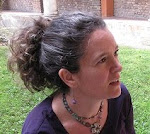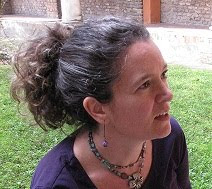According to the rubrics - as I have been taught - of the 1979 Episcopal Book of Common Prayer, we stand for corporate prayer. In a practical sense that means that I stand a lot during the service:
We stand for the processional
for the welcome
song of praise
collect.
We sit for the readings
standing to witness as a people the proclamation of the Good News.
We sit to hear the learned response.
We stand to communally affirm that We Believe.
We remain standing so that as a people a representative can petition our prayers.
And then we kneel. From my earliest memories, I have repeated in unison with the gathered body of Christ:
Most Merciful God,
we confess that we have sinned against you
in thought, word, and deed,
by what we have done,
and by what we have left undone.
We have not loved you with our whole heart;
we have not loved our neighbors as ourselves.
We are truly sorry and we humbly repent.
For the sake of your Son Jesus Christ,
have mercy on us and forgive us;
that we may delight in your will,
and walk in your ways,
to the glory of your Name. Amen.
I don't remember a time when I thought it was unimportant to recite - not read - the Confession. Reciting allows my mind to wander, to stop on the words that resonate, to think on what I might have done better or not done at all. It does not bind me up in guilt, nor does it make me feel either better or worse. For most of my 38 worshipping years, I have recited and moved on, having made right with myself in order to make right with my neighbor.
***
Last week was the Feast of the Purification and Presentation, the Feast of Candlemas. Juan Oliver's Preacher's Study for the Feast touches on exactly what that means. According to Jewish rites, Mary comes to pay the temple tax in order to be made ritually clean after giving birth. Joseph and Mary come together to present their first born son, Jesus, as an unblemished offering to Go. We're most familiar with this Festal occasion because it gives us Simeon's graceful personal/political commentary on Emmanuel's birth, the Nunc Dimittis.
***
***
"Lord, you now have set your servant free
to go in peace as you have promised;
For these eyes of mine have seen the Savior,
whom you have prepared for all the world to see:
A Light to enlighten the nations,
and the glory of your people Israel.
"Have mercy on us and forgive us, that we may delight in your will and walk in your ways."
to go in peace as you have promised;
For these eyes of mine have seen the Savior,
whom you have prepared for all the world to see:
A Light to enlighten the nations,
and the glory of your people Israel.
I urge you to read Juan's pericope. It's thought provoking even though we are now past the Feast. Juan digs into the cultural reasons for placing the Feast when it is and the 1st century implications of Joseph and Mary's actions, as well as the developments to the Feast by the early Church. What does the Feast's placement, so squarely within the season of Epiphany mean for 21st century listeners?
***
I had fully intended to write on the Purification last week. A chorister from my earliest years, I love singing the Nunc and it never fails to comfort in the last moments of Compline. I was struck by the idea Juan presents of a Light that is also a scourge. A Light that like fuller's soap, purifies. He writes, "So Luke stresses that we cannot enjoy the light and warmth of Christ without also welcoming the purification that it brings, a cleansing of the inner clutter of insecurity, lack of focus, deceitfulness, culling favor, and so on."
Daily living go in the way of writing, as it does when I'm not paid to do it. I was okay with setting this aside, allowing the green shoots to mature a while.
***
Until, that is, Sunday. We knelt to recite the Confession and as we were standing to enact the Peace I experienced an epiphany of my own.
"Have mercy on us and forgive us, that we may delight in your will and walk in your ways."
Our confession is fuller's soap. If we don't repent of the wrongdoing - petty and insignificant or all-encompassing - we cannot have room to DELIGHT.
A progressive Christian, I have been told my whole life that God is Love, God loves me, God is still creating, God is willing us to be Love...in other words, God wants us to delight.
As the member of an extended Jewish family, I have always taken seriously that Jews follow Torah because it delights them. To follow God's will is to offer thanks to God.
And sot the call to repent, to be purified, to present ourselves scrubbed clean is not because God wants us to be Good - whatever that is. God wants us to have enough room in our hearts to DELIGHT and thus be willing and able to follow God's ways.
***
A few years ago I taught a family service how to use American Sign Language to recite the Lord's Prayer. My families and I were struck by the word for sin in ASL - using both hands in loose fists but with the index finger of each hooked, make small circles from your stomach outwards.
What happens in our bodies when we have sinned? When we have not told the whole truth or we have held onto information that should have been shared? When we call each other names? OUR STOMACHS HURT. There is literally no room for delight. We must rid ourselves of the fullness of sin in order to make room for delight. We have seen the Light, set us free.
***

